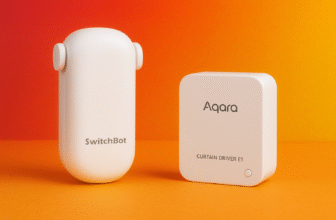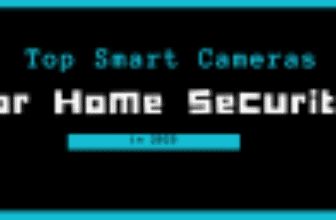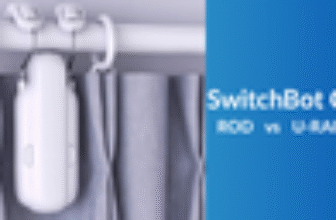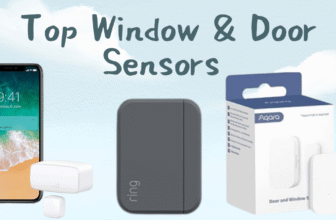
What is a smart home?
A smart home is a house equipped with internet-connected devices and sensors. That allow for automation, security, convenience, and energy efficiency. These devices, such as smart thermostats, lighting, security systems, and appliances. Communicate with each other and the homeowner through a wireless network. Smart homes provide benefits such as energy savings, increased security, and convenience.
What is a smart home security system?
A smart home security system is a modern, advanced technology. That enables homeowners to remotely monitor and manage their homes’ security. This system uses internet-connected devices and sensors to detect and alert homeowners of potential intruders. Fire or gas hazards, and other threats.
This systems typically include a central hub. That connects to various sensors, cameras, and smart devices throughout the home. Homeowners can then control and monitor these devices. Using a smartphone app, a computer, or a voice-controlled. Or virtual assistant like Amazon’s Alexa or Google Assistant.
Some of the key features of this system include real-time notifications. And remote monitoring, and control, automated alerts. And the ability to integrate with other smart home devices, like smart locks, smart thermostats, and smart lights. This system can also be customized to fit individual homeowners’ needs. With options for indoor and outdoor cameras, motion sensors, door, and window sensors, and more.
Overall, It is an efficient and effective way to enhance home security. And provide peace of mind for homeowners.
How does a smart home security system work?
A smart home security system is a network of connected devices. That work together to protect your home. The system usually includes sensors, cameras, and alarms. Which are all connected to a central hub or control panel. When a sensor detects an unusual activity or a camera detects motion. It sends a signal to the control panel. The control panel then analyzes the data. And decides whether to trigger an alarm. Notify the homeowner or contact emergency services. The system can be accessed and controlled remotely through a smartphone app or a web interface. Overall, a smart home security system provides an advanced and convenient way to secure. Your home with the help of technology.
What are the features of smart home security?
It have become increasingly popular in recent years. As homeowners look for ways to improve their home security and protect their property. These systems offer a range of features, including full control from anywhere. Instant notification of unusual activity. Improved security through integrated devices like motion sensors and cameras. And ultimately, peace of mind for homeowners with this. You can monitor and control your home security from anywhere. Using your smartphone or other connected devices. Giving you greater flexibility and control over your home security.
Full control from anywhere
With this, you can control and monitor your home security from anywhere. As long as you have an internet connection. This means that you can arm and disarm your system. View live feeds from your security cameras. And receive alerts about any unusual activity in your home. All from your smartphone or other connected devices. This gives you greater flexibility and control over your home security. even when you’re away from home.
Instant notification
One of the key features of smart home security systems is instant notification. When your security system detects any unusual activity. Such as a door or window opening, a motion sensor being triggered. Or a smoke alarm going off. You’ll receive an instant notification on your smartphone or another connected device. This can help you to take immediate action to address the issue. Whether that’s calling the police, checking your security camera feed. Or simply resetting your alarm.
Improved security
It offer a range of features designed to improve your home security. Such as motion sensors, door and window sensors, and security cameras. These devices can be integrated into your overall security system. To provide a comprehensive and reliable solution for protecting your home. You can also choose to integrate other smart home devices. Such as smart locks or smart lighting, to further enhance your home security.
Peace of mind
Ultimately, the key benefit of this system is peace of mind. Knowing that your home is protected by a comprehensive and reliable security system. It can help you to feel more secure and confident. Whether you’re at home or away. It can also provide valuable insights into your home security. Such as tracking when your doors are opened or closed. Or alerting you to unusual activity in or around your home. Giving you an added layer of protection and peace of mind.
What Devices Are Included In a Smart Home Security System?
It is a comprehensive approach to protecting your home and loved ones. By utilizing a range of devices, from entry sensors and motion detectors to security cameras and smoke detectors. you can ensure that your home is secure and monitored at all times.
Base stations
A base station serves as the central hub of a smart home security system. It connects all of the other devices in the system. And communicates with them to provide a unified approach to security monitoring.
Security cameras

Security cameras
Security cameras are an essential component of a smart home security system. They can be placed both indoors and outdoors. To capture footage of potential intruders or suspicious activity. Some security cameras are also equipped. With motion detection technology and night vision capabilities.
Motion sensors
Motion sensors are designed to detect movement within a specific area. When triggered, they can send an alert to the base station. Which will then notify the homeowner or monitoring company of potential intrusion.
Entry sensors
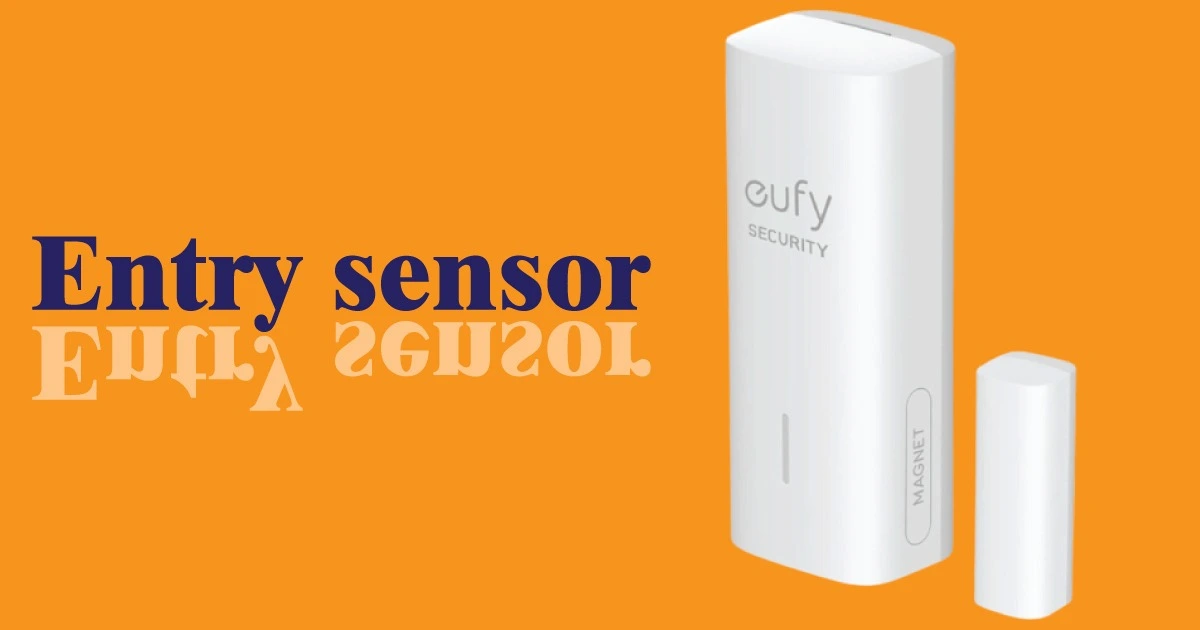
Entry sensors
Entry sensors are placed on doors and windows to detect when they are opened or closed. When triggered, they can alert the base station. Which will then notify the homeowner or monitoring company of potential intrusion.
Glass break sensors
Glass break sensors are designed to detect the sound of breaking glass. They are typically placed near windows and glass doors. And can trigger an alarm if they detect a break-in.
Sirens
Sirens are loud alarms that can be triggered by motion sensors, entry sensors, or glass break sensors. They are designed to alert the homeowner and scare off potential intruders.
Smart keypads
Smart keypads can be used to arm and disarm the security system. They are typically placed near entryways and can be locked to prevent unauthorized access.
Key fobs
Key fobs are small, portable devices that can be used to arm and disarm the security system from a distance. They are often used by family members. And can also be used to trigger panic alarms.
Yard sign and/or window stickers
A yard sign and/or window stickers can be used to deter potential intruders. They indicate that the home is protected by a security system. And may discourage burglars from attempting a break-in.
Smoke and CO detectors
Smoke and CO detectors are essential components of this security system. They can detect smoke and carbon monoxide. And alert the homeowner or monitoring company in the event of a fire or gas leak.
Panic alarms
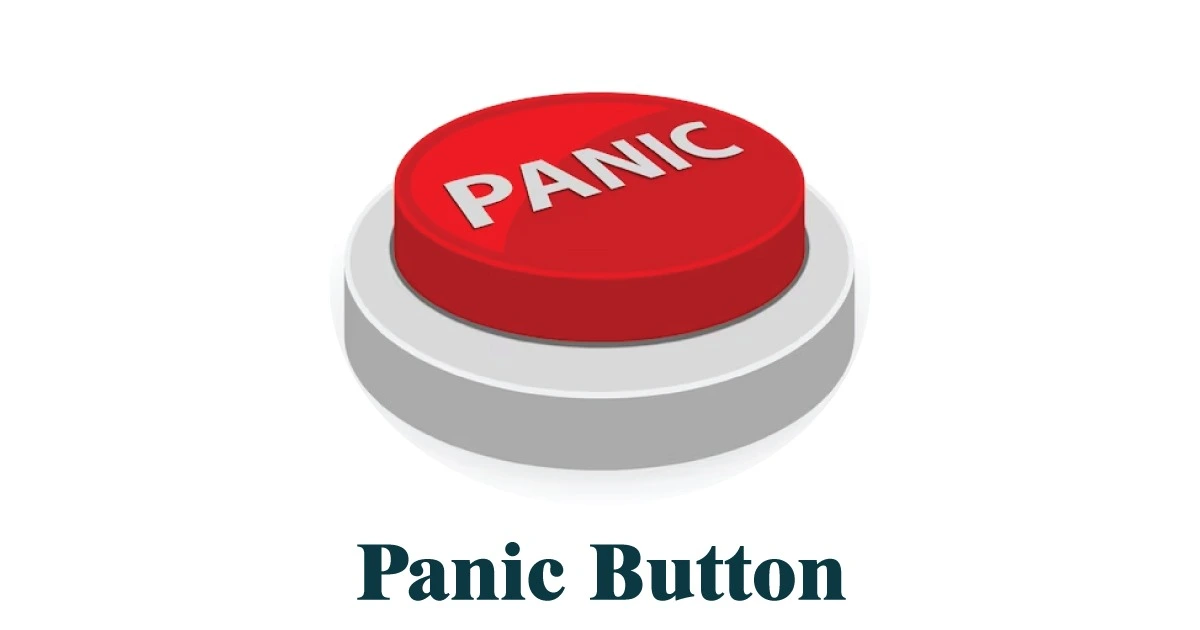
Panic alarms
Panic alarms are designed to be triggered in case of an emergency. They can be activated using a smart keypad or key fob. And can alert the monitoring company to dispatch emergency services if needed
Types of Home Security Systems
Home security systems are designed to protect your home. And property against theft, burglary, and other potential threats. There are different types of home security systems available in the market. Each with its own set of features and benefits. In this answer, we will discuss the various types of home security systems. Including DIY, professional, wired, wireless, smart, and local-only.
DIY Home Security Systems
A DIY home security system is a system that you can install and set up yourself. These systems typically come with a range of equipment. Such as sensors, cameras, and alarms. That you can install throughout your home. DIY home security systems are relatively easy to install. And can be a cost-effective way to protect your home.
Professional Home Security Systems
It is installed and monitored by a security company. These systems typically include a range of equipment. Such as sensors, cameras, and alarms. All are professionally installed by the security company. Professional home security systems can be more expensive than DIY systems. But they offer a higher level of protection and can be more reliable.
Wired Home Security Systems
This is hardwired into your home’s electrical system. These systems typically include a range of equipment. Such as sensors, cameras, and alarms, that are connected to a control panel. Wired home security systems can be more reliable than wireless systems. But they can be more difficult and expensive to install.
Wireless Home Security Systems
A wireless home security system uses wireless technology to connect the various components of the system. These systems typically include a range of equipment, such as sensors, cameras, and alarms, that are connected to a control panel using wireless signals. Wireless home security systems can be easier and less expensive to install than wired systems. But they can be less reliable.
Smart Home Security Systems
A smart home security system uses smart technology to connect the various components of the system. Include a range of equipment, such as sensors, cameras, and alarms. that are connected to a control panel using smart technology. Smart home security systems can be controlled remotely. Using a smartphone or other device and can include features such as voice control and automation.
Local-Only Home Security Systems
A local-only home security system does not include any monitoring or remote access features. Include a range of equipment, such as sensors, cameras, and alarms. That are connected to a control panel. Local-only home security systems can be a cost-effective way to protect your home. But they offer a lower level of protection than the monitored system
Advantages and Disadvantages of Smart Homes
It, also known as home automation. Are houses equipped with advanced technology. That allows homeowners to control and automate various household systems. Such as lighting, heating and cooling, security, and entertainment. Through a centralized control system, typically a smartphone or a voice assistant. While there are many benefits to smart homes. There are also some downsides. Here are some pros and cons of smart homes:
Pros
- Increased convenience: You can control various appliances and systems. With just a few clicks on your smartphone. Saving you time and effort. For example, you can turn off the lights or adjust the thermostat. Without having to get up from your couch.
- Improved energy efficiency: It can help reduce energy bills by automating the heating and cooling system. optimize energy usage based on occupancy and weather conditions.
- Enhanced security: It can help you monitor and secure your home. With features like motion detectors, door and window sensors, and smart locks. Which can all be controlled remotely.
- Better accessibility: For people with disabilities or mobility issues. A smart home can provide greater accessibility. Allowing them to control various household systems with ease.
- Increased home value: A smart home can increase your property value, making it more attractive to potential buyers.
Cons:
- High cost: The initial cost of installing a smart home system can be quite high. And ongoing maintenance and upgrades can also be costly.
- Privacy concerns: Smart homes can collect and store sensitive data about homeowners. Including their daily routines and personal habits. Which can pose a risk to privacy if not adequately secured.
- Compatibility issues: Different smart home systems and devices may not be compatible with one another. Requiring homeowners to purchase additional equipment or use different apps to control them.
- Security risks: Smart homes can be vulnerable to hacking and cyberattacks. Which can compromise sensitive data or even control of the home’s systems.
- Technical issues: Smart homes rely on technology. Which can be prone to technical glitches. Connectivity issues, and software updates. That can be time-consuming and frustrating to resolve.
How Much Does a Smart Home Cost?
It’s cost can vary depending on various factors. Such as the type of devices and technology used, the size of the home. And the complexity of the installation. However, some estimates suggest that a basic smart home system can cost around $500. While a more comprehensive system could range from $5,000 to $15,000 or more.
The cost of smart home devices can also vary greatly. With some devices such as smart light bulbs and smart plugs costing less than $50. While other more sophisticated devices like smart thermostats or security systems. It can cost several hundred dollars. Additionally, the cost of installation and ongoing maintenance can also add to the overall cost.
Overall, while the cost of a smart home can be significant. The benefits of increased energy efficiency, convenience, and security. Make it a worthwhile investment for some homeowners.
Why Is a Smart Home Important?
A smart home is important because it offers homeowners increased convenience, comfort, and security. Homeowners can control various aspects of their homes through voice commands or smartphone apps. Such as adjusting the temperature, turning on lights, and even unlocking doors. Additionally, smart home devices can monitor and detect potential security threats. Such as smoke or carbon monoxide, and alert homeowners immediately. Overall, a smart home can provide a more efficient and enjoyable living experience.
Conclusion
Smart home security systems use advanced technology. Such as sensors, cameras, and smart locks. Provide a secure and convenient way of protecting homes. They detect and alert homeowners of potential threats. Offer remote monitoring and control, and provide convenience. Smart home security is an effective and increasingly popular way. To secure homes and protect families and valuables



